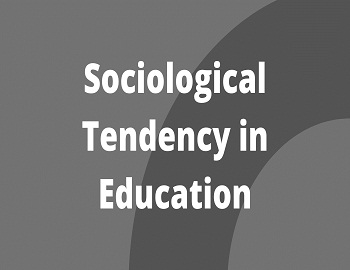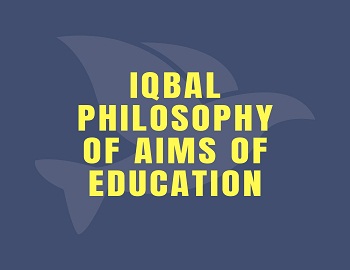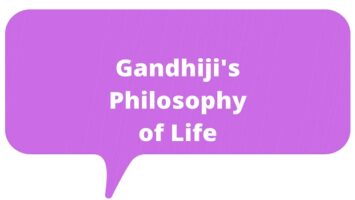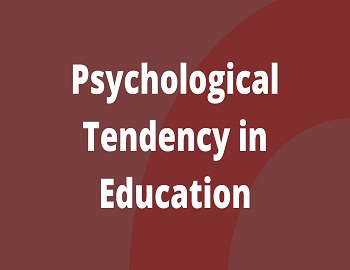Development of Sociological Tendency in Education:
Sociological Tendency in Education is nothing but an attempt to inculcate social qualities in children so as to ensure the welfare and the development of the individual as well as the society. Following are the main reasons which lead to the development of sociological tendency in education-
(1) From very early times, thinkers have been emphasizing the social aims of education. According to them, the development of society is the aim of education. It may, however, be admitted that sometimes this view remained predominant and sometimes it was overshadowed by others. Anyhow, it is quite obvious that this aim of education gave birth to the sociological tendency in education.
(2) Rousseau, the supporter of Naturalism, was of the view that the aim of education is so to improve the condition of the people. He thus attracted the attention of educationists and thinkers towards the sociological tendency in education.
(3) Pestalozzi, the propounded of psychological tendency in education, Herbert and Froebel also contributed much for the development of sociological tendency in education. According to Pestalozzi, the welfare of society is the aim of education. Herbert emphasized moral development as the aim of education. According to Froebel, school is but a miniature form of society. These educationists laid the foundation of the sociological tendency in education.
(4) Herbert Spencer, the propounder of scientific tendency in education, and his supporters, further strengthened the sociological tendency in education by giving significance to scientific and social subjects for the welfare of society.
(5) As a result of the Industrial Revolution in the 18th century, the thinkers made efforts to fulfil the needs of the labourers and common people. This further strengthened the sociological tendency.
(6) 18th and 19th centuries witnessed the birth of democratic ideas emphasizing freedom, equality and cooperation. The welfare of society was considered to be the main aim of education for establishing firmly democratic ideas and institutions.
(7) Being inspired by the aforementioned circumstances, a French scholar named August Compte (1798-1851), gave birth to a new General Social Science named “Sociology” and thereby firmly established the sociological tendency in education. The sociological tendency in education is propounded in Educational Sociology which is a branch of Sociology. In order to understand the sociological tendency in education, we will now discuss the important characteristics of sociological tendency.
Important Characteristics of Sociological Tendency:
Following are the important characteristics of sociological tendency-
(1) Since the sociological principles have gained a place in education, the meaning of education is considered not only the external development of the internal powers but also a change in the behaviour of the individual.
(2) It is now considered that the aim of education is to develop the social qualities and capability to shoulder the social responsibilities so that the educands may lead a successful social life.
(3) Sociologists have emphasized social life and social needs in the curriculum whereas psychologists emphasize the individual method of education.
(4) This tendency encourages the subjects connected with social requirements in the curriculum as compared to the individual needs and interests.
(5) This tendency lays more emphasis on social subjects and natural sciences in the curriculum as compared to literary subjects.
(6) Sociologists feel that in the complicated world of today, it is not proper to confine education to the study of a few subjects alone. On the other hand, subjects connected with a different aspect of social life should be included in the curriculum. In the words of an eminent educationist:
“Education is not to be confined to the study of a few subjects alone but is to present an epitomized study of the diversified social life”.
(7) This tendency emphasizes that the arrangement of the education of the common people is necessary for the establishment of democratic rule. According to it, the State should make proper arrangements for the education of the people. The organization of the State Education System is an outcome of this tendency.
(8) This tendency is opposed to individualism because it attaches more significance to society as compared to the individual. It served a crushing blow to the individualistic ideas of the 17th and 18th centuries and in their place put forward social welfare and preparing of good citizens as the aims of education.
(9) In order that every individual of the society may lead a successful life while contributing to the progress of the society, it emphasizes vocational education.
(10) It considers necessary to acquaint the student with the complication of social life so that they may understand every situation and the problem of the society and may select their ways accordingly.
(11) As compared to abstract principles, this tendency emphasizes things connected with practical life and encourages and inspires the students to contribute to the reform of society.









Comments (No)